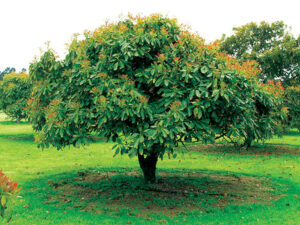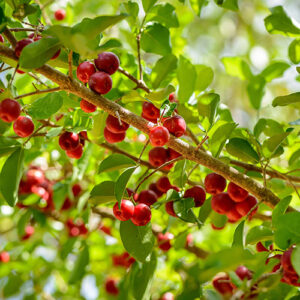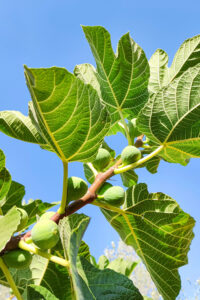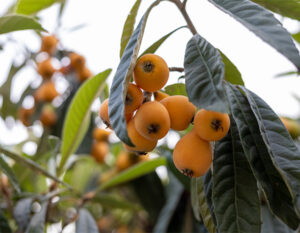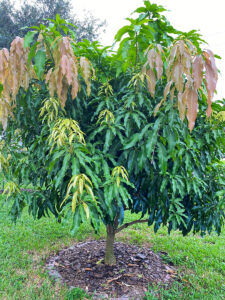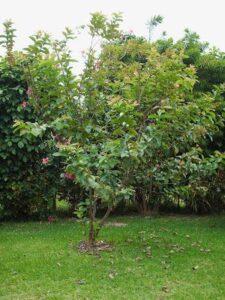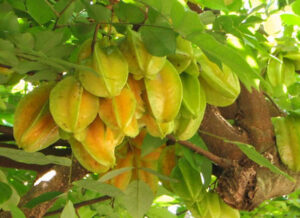PLANT CATALOG
Persea americana Miller - A medium (30 ft; 9.1 m) to large (65 ft; 19.8 m) tree, the avocado tree is classified as an evergreen, although some varieties lose their leaves for a short time before and during flowering. The tree canopy ranges from low, dense and symmetrical to upright and asymmetrical.
Malpighia glabra - Whether it's grown in the ground among other fruit trees in your garden or in a container on the patio, the Barbados Cherry will provide tons of delicious cherries each growing season and in just one or two years. It’s fast, low-maintenance and versatile because we’ve planted, monitored and shipped it to your door with absolute care, so you get a high-quality tree that’s consistent year after year.
Reaching a mature height of just 12 feet, the Barbados' convenient size and hardiness place it among the most adaptable cherry bushes available.
Ficus carica are fruiting plants that typically grow up to 8'-15' tall in Florida, though there are smaller-growing varieties. These figs are parthenocarpic, meaning that the fruits form without fertilization. Typically, the fruits ripen in July and October, and their size and taste vary according to the variety. The most recommended varieties for Florida are 'Celeste', 'Brown Turkey', and 'Ischia'.
Eriobotrya japonica - Loquat trees are evergreen, have a short trunk, and may reach 20 to 35 ft in height. They have a rounded to upright canopy.
A strikingly beautiful, small to medium size evergreen tree, Loquat features long, dark green, deeply toothed foliage and tasty, light orange, apricot-like fruit. Loquat is very happy in the Maritime Northwest, although its pesky habit of blooming in the winter makes it difficult to produce fruit in our region. Loquat’s ornamental value makes it well worth growing and, depending on the winter weather, you should occasionally receive a crop of this unusual and delicious fruit.
Mangifera indica L - Mango trees can grow well in Florida's tropical and subtropical climate, especially in the warmest areas of the state along the southeast and southwest coasts. They can also be grown in protected locations as far north as Merritt Island and along the southeast and southwest shorelines of Lake Okeechobee.
Trees are evergreen, with a symmetrical, rounded canopy ranging from low and dense to upright and open. In general, tree size is more easily managed to maintain a low stature (height and width) while maintaining good fruit production than more vigorous varieties.
Psidium guajava ‘Tropic Pink’ - Pink Guava is one of the most delicious and attractive fruits you can grow. Reminiscent of a small watermelon, the fruit’s yellow-green rind protects a tasty pink flesh with small seeds. The fruit tastes like a unique blend of strawberry and pear!
The Tropical Pink Guava Tree itself is eye-catching even between its twice-annual fruiting seasons. This tree can reach 15 to 20 feet at maturity, but can also be pruned into a bush perfect for containers. In fall and spring, the tree blooms with fragrant white blossoms.
Averrhoa carambola L. - Star fruit is a tropical tree and grows in warm and hot temperatures. Although they can grow in subtropical areas that experience only occasional freezing temperatures. The best temperature to grow star fruit is 68° to 95°F.
The star fruit is a rich source of vitamin C, B9, B6, B2, and dietary fiber. It also contains various minerals, such as potassium, zinc, phosphorus, and iron. It’s a low-calorie fruit, with only 31 calories per 100 grams. And the star fruit tree is beautiful, too!


